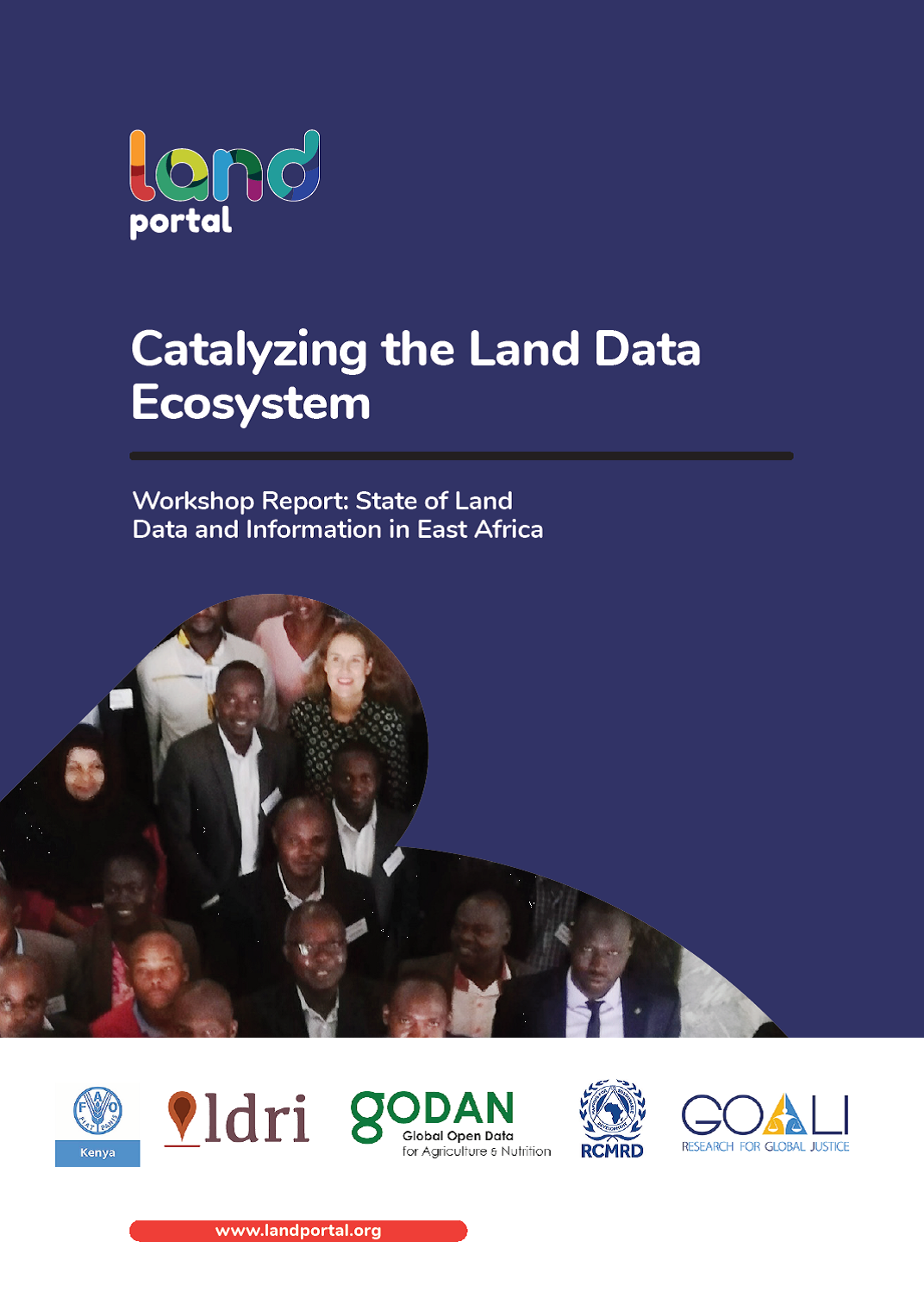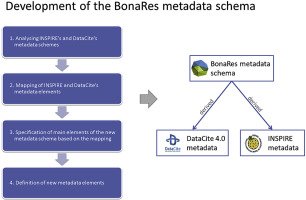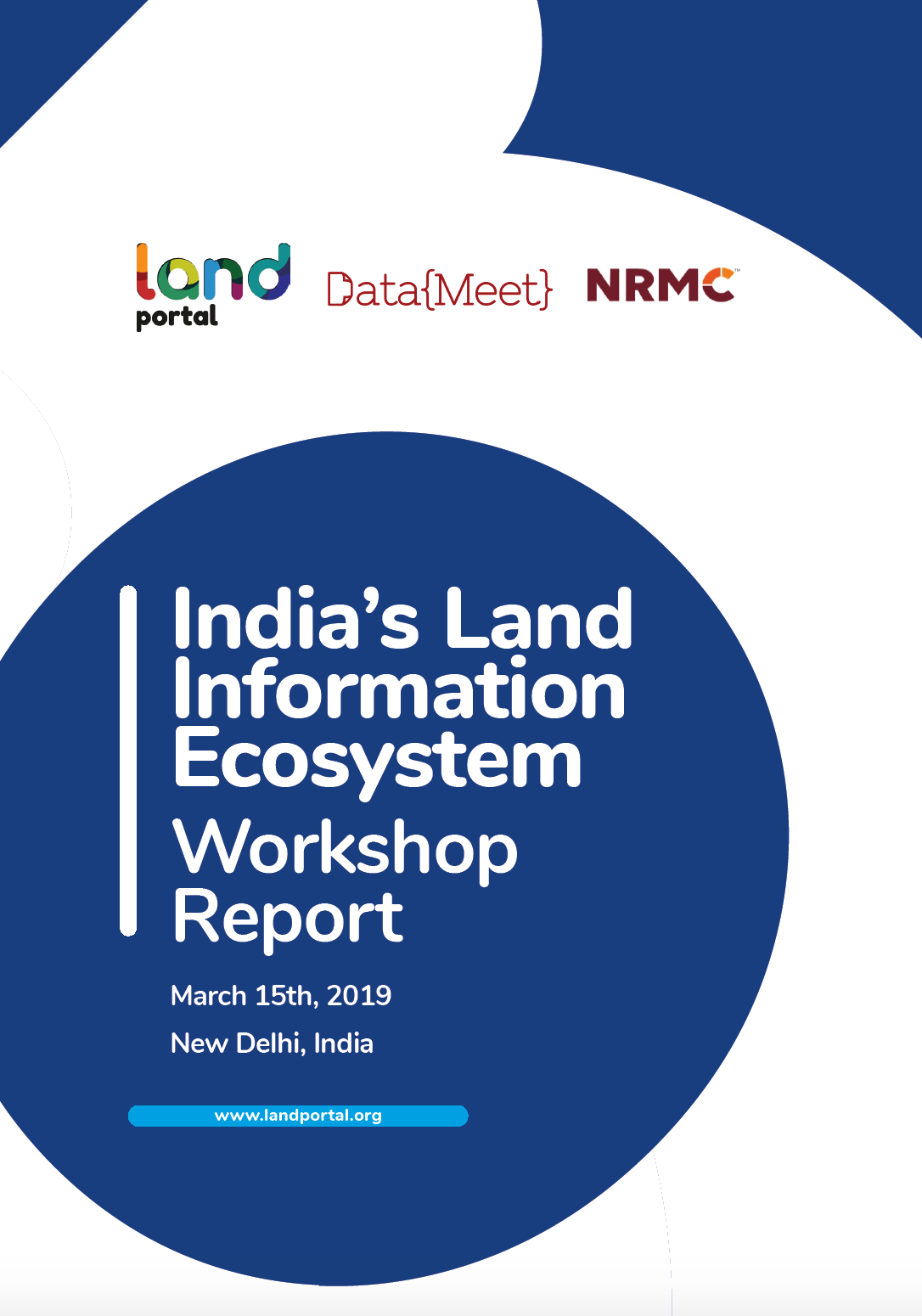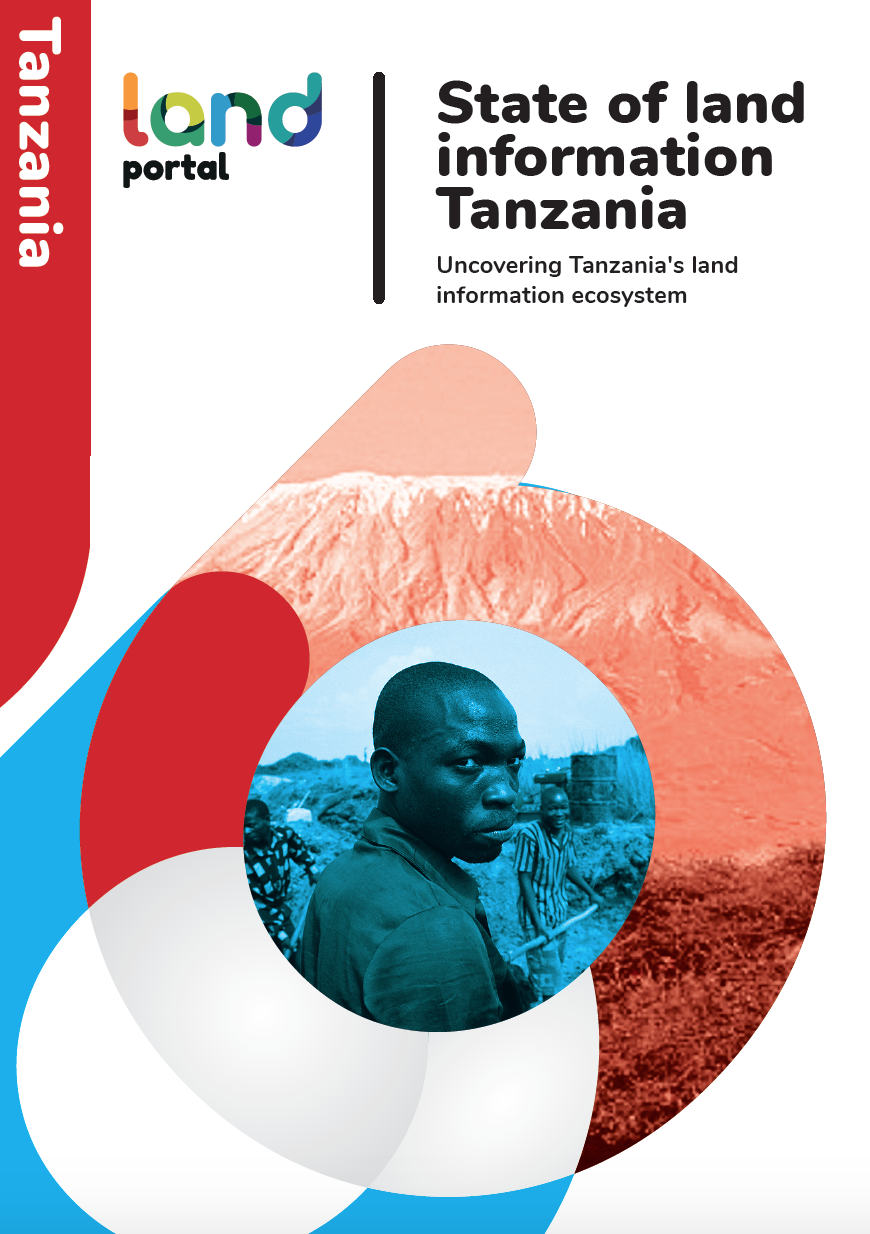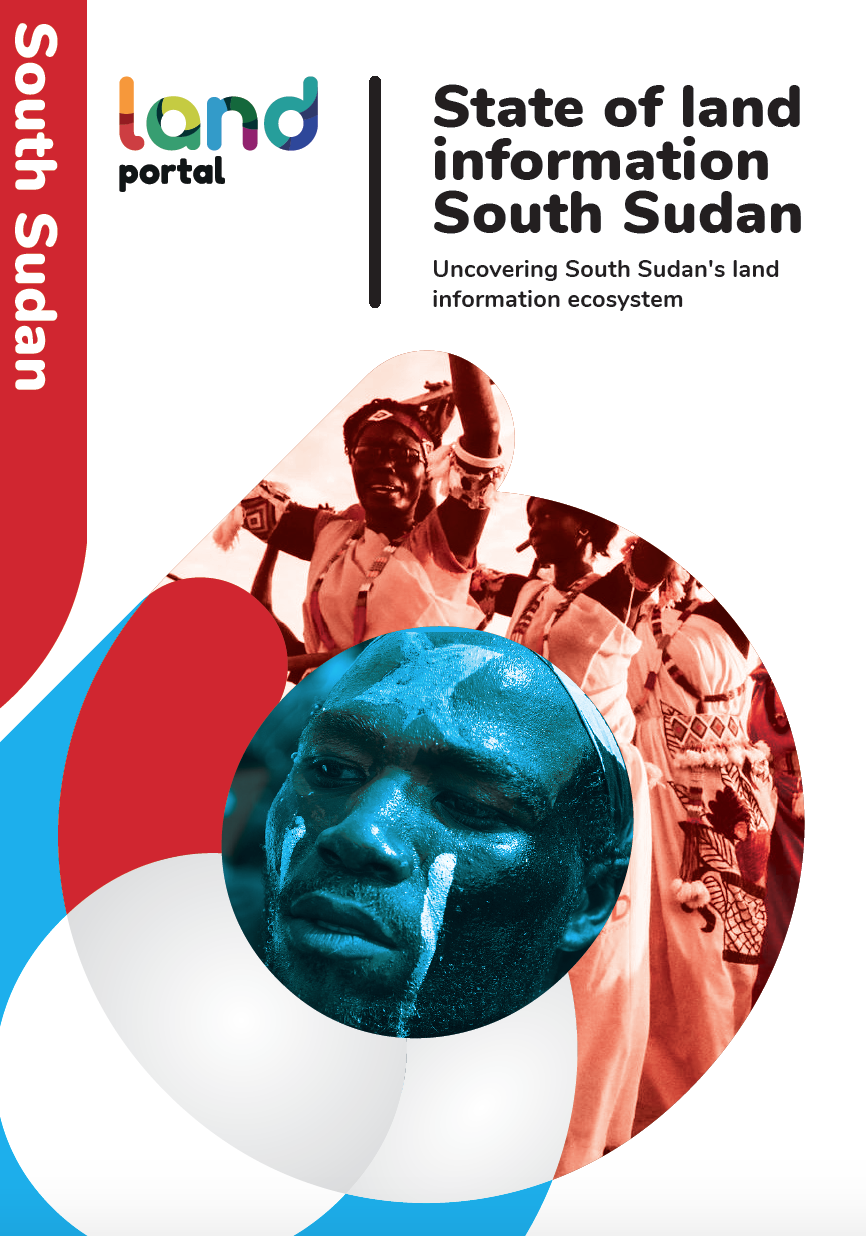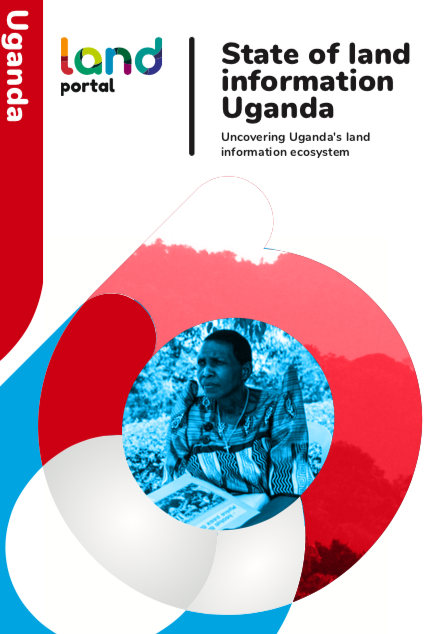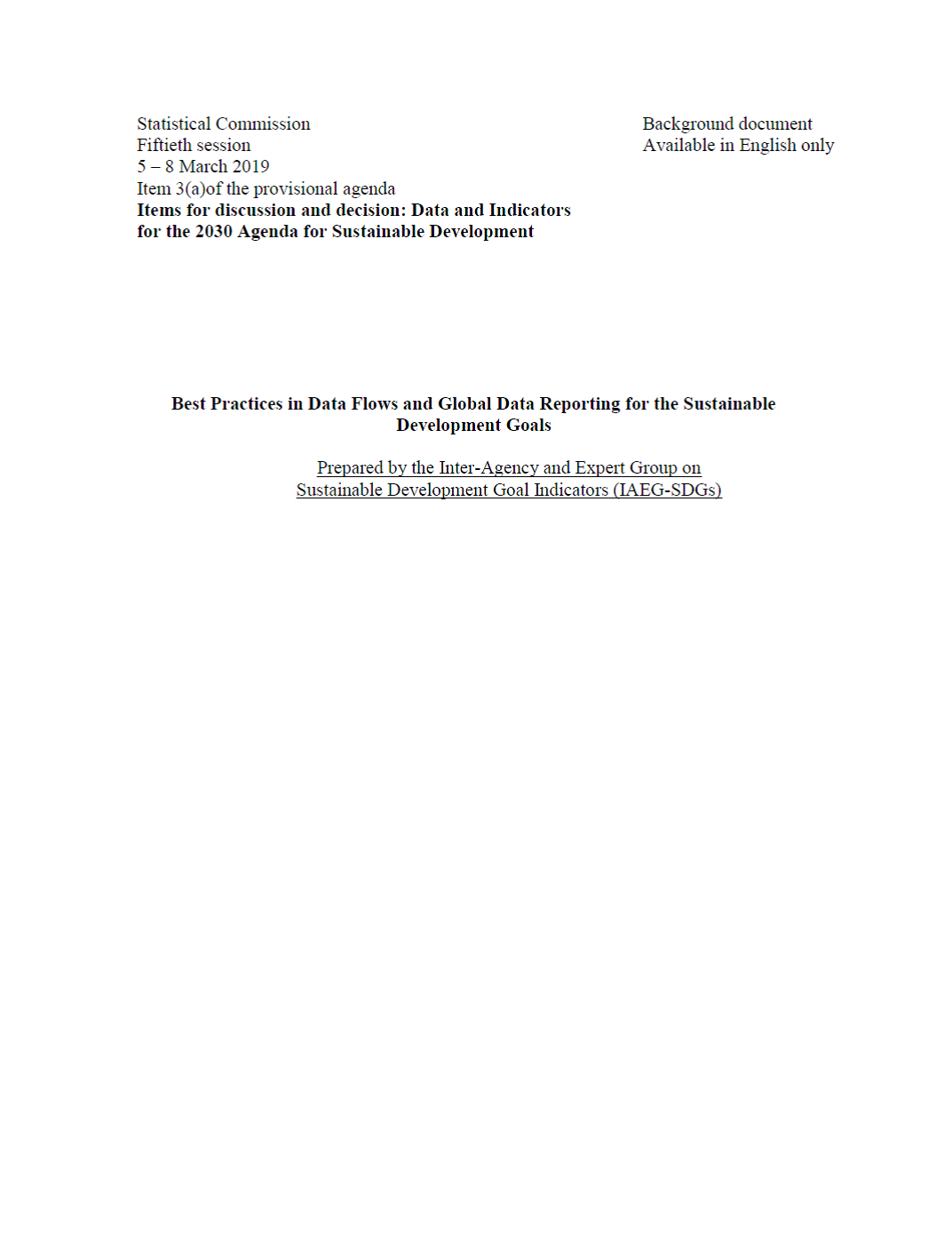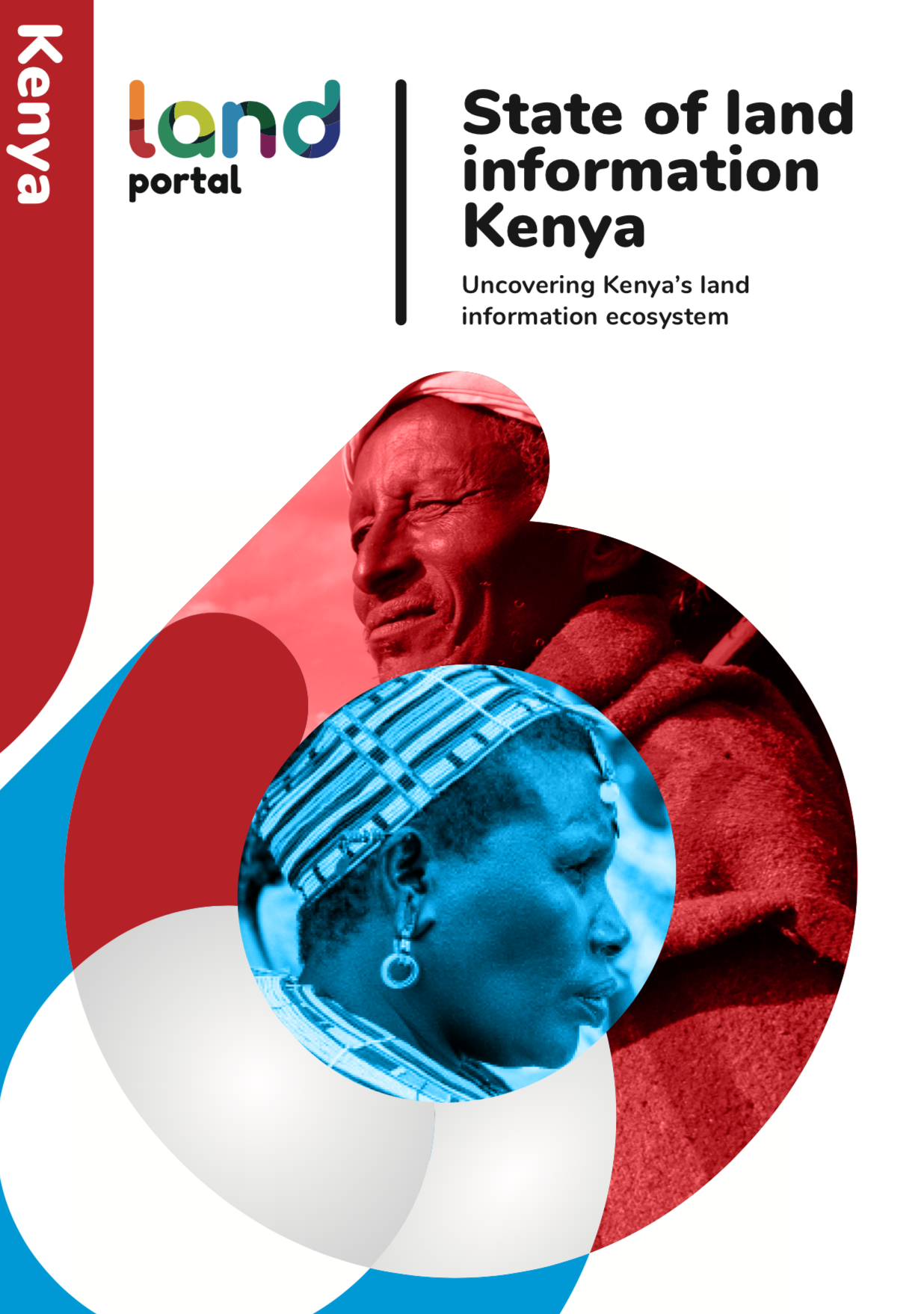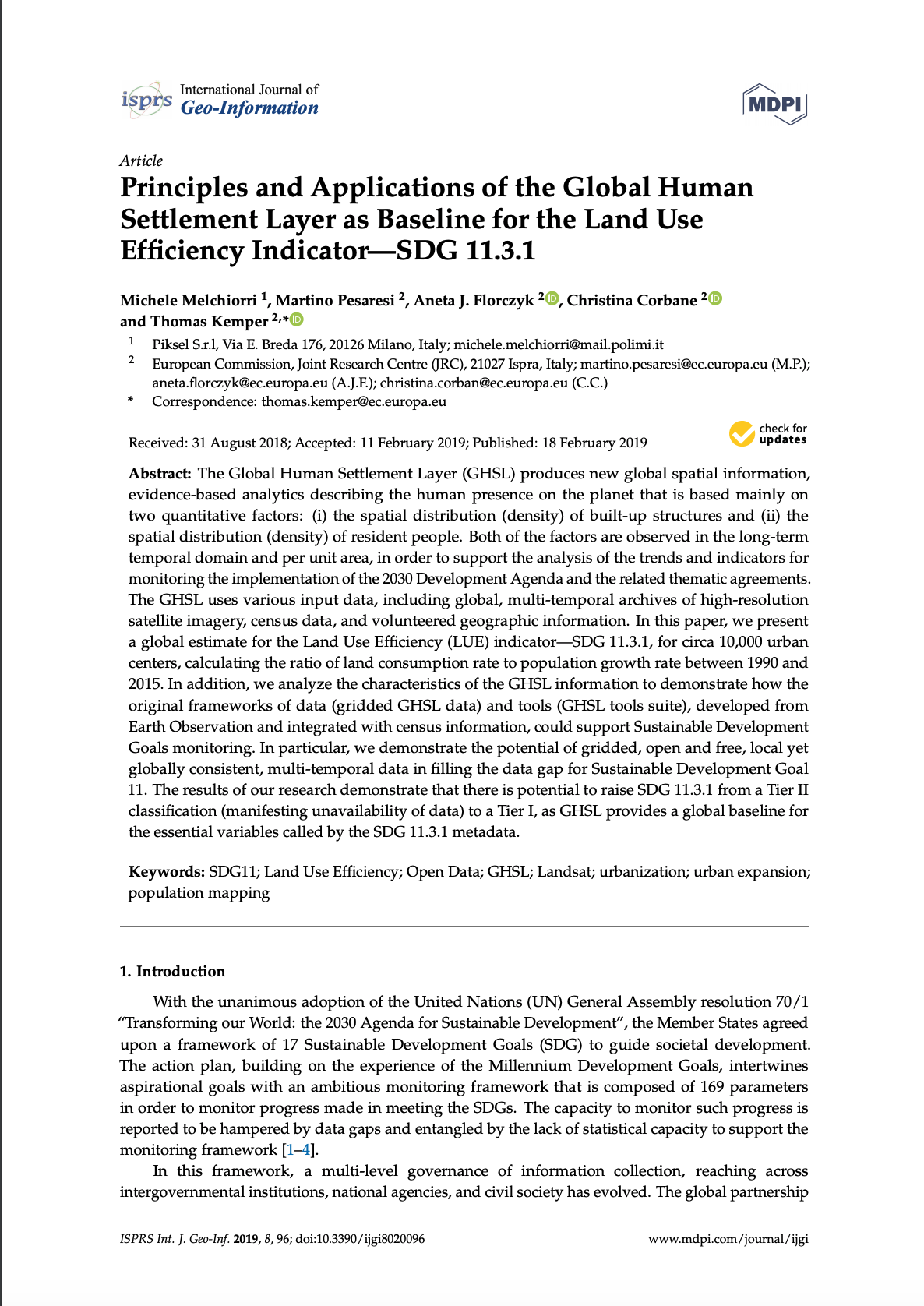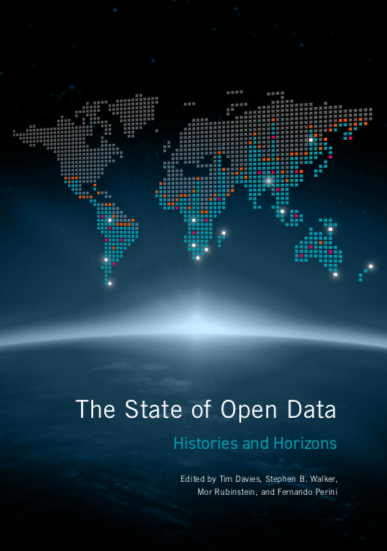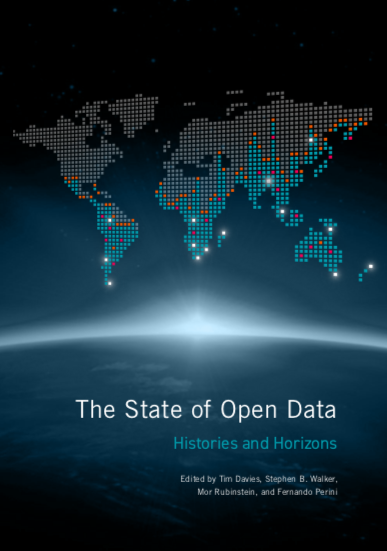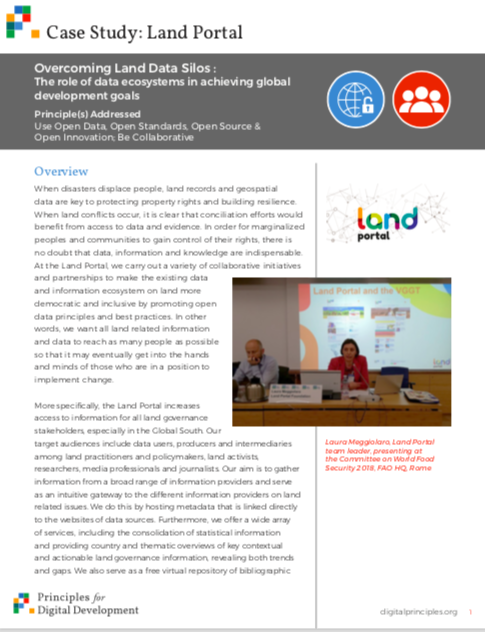Catalyzing the Land Data Ecosystem
There is no doubt that the Global Data Revolution has reached the land sector. Government data portals, open access academic journals, community mapping initiatives and other citizen-generated data - there is a palpable positive drive across the world that allows processes such as data collection to be more inclusive and open. But within this data momentum, there are still many barriers and questions: Who can access the data, and how? What data is reliable? Who owns the data? What data is up to date? Can I use the data without inflicting harm?

